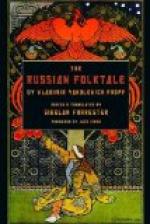Fairy tales must have certain qualities which belong to all literature as a fine art, whether it is the literature of knowledge or the literature of power. Literature is not the book nor is it life; but literature is the sense of life, whose artist is the author, and the medium he uses is words, language. It is good art when his sense of life is truth, and fine art when there is beauty in that truth. The one essential beauty of literature is in its essence and does not depend upon any decoration. As words are the medium, literature will distinguish carefully among them and use them as the painter, for particular lights and shades. According to Pater literature must have two qualities, mind and soul. Literature will have mind when it has that architectural sense of structure which foresees the end in the beginning and keeps all the parts related in a harmonious unity. It will have soul when it has that “vagrant sympathy” which makes it come home to us and which makes it suggest what it does not say. Test the Tale of Cinderella by this standard. As to mind, it makes one think of a bridge in which the very keystone of the structure is the condition that Cinderella return from the ball by the stroke of twelve. And its “vagrant sympathy” is quite definite enough to reach a maid of five, who remarked: “If I’d have been Cinderella, I wouldn’t have helped those ugly sisters, would you?”
If the fairy tale stands the test of literature it must have proved itself, not only a genuine classic according to Sainte-Beuve’s standard, and a tale possessing qualities of mind and soul according to Pater’s Style, but it must have shown itself also a work owning certain features distinguishing it as literature. These particular literary marks which differentiate the literary tale from the ordinary prose tale have been pointed out by Professor Winchester in his Principles of Literary Criticism. They apply to the old tale of primitive peoples just as well as to the modern tale of to-day. As literature the tale must have:
(1) a power to appeal to the emotions;
(2) a power to appeal to the imagination;
(3) a basis of truth; and
(4) a form more or less perfect.
(1) A power to appeal to the emotions. This appeal to the emotions is its unique distinguishing literary trait. Literature appeals, not to the personal emotions but to the universal ones. For this reason, through literature the child may come in time to develop a power of universal sympathy, which is not the least value literature has to bestow upon him, for this sympathy will become a benediction to all those with whom he may have to deal. In order that emotion in the tales may be literary—make a permanent appeal—according to Professor Winchester’s standards, it must have justness given by a deep and worthy cause; vividness so that it may enlarge and thrill; a certain steadiness produced by everything




